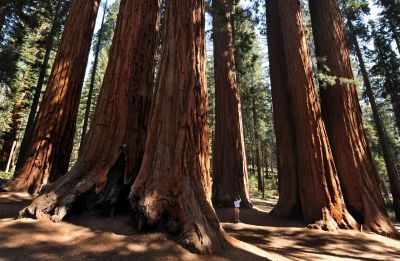Decrease in fog threatens California's s sequoias: study

California's coastal fog has decreased significantly over the past 100 years, potentially endangering coast redwood trees dependent on cool, humid summers, according to a new study made public Monday.
The study by University of California, Berkeley, scientists said it was unclear whether this phenomenon was part of a natural cycle or the result of human activity.
But it warned the change could affect not only the redwoods, but the entire redwood ecosystem.
"Since 1901, the average number of hours of fog along the coast in summer has dropped from 56 percent to 42 percent, which is a loss of about three hours per day," said study leader James Johnstone, who worked at the University of California's Department of Geography before becoming a postdoctoral scholar in the campus's Department of Environmental Science, Policy and Management.
"A cool coast and warm interior is one of the defining characteristics of California's coastal climate, but the temperature difference between the coast and interior has declined substantially in the last century, in step with the decline in summer fog," Johnstone continued.
The loss of fog and increased temperature mean that "coast redwood and other ecosystems along the US West Coast may be increasingly drought-stressed, with a summer climate of reduced fog frequency and greater evaporative demand," said co-author Todd Dawson, a Berkeley professor of integrative biology.
"Fog prevents water loss from redwoods in summer, and is really important for both the tree and the forest. If the fog is gone, we might not have the redwood forests we do now."
The report will be published in the journal Proceedings of the National Academy of Sciences.
Subscribe to Independent Premium to bookmark this article
Want to bookmark your favourite articles and stories to read or reference later? Start your Independent Premium subscription today.

Join our commenting forum
Join thought-provoking conversations, follow other Independent readers and see their replies